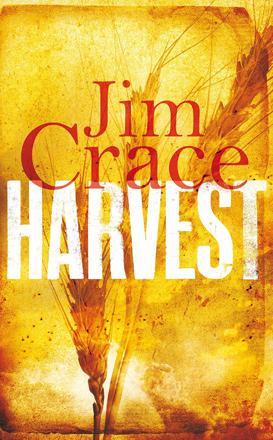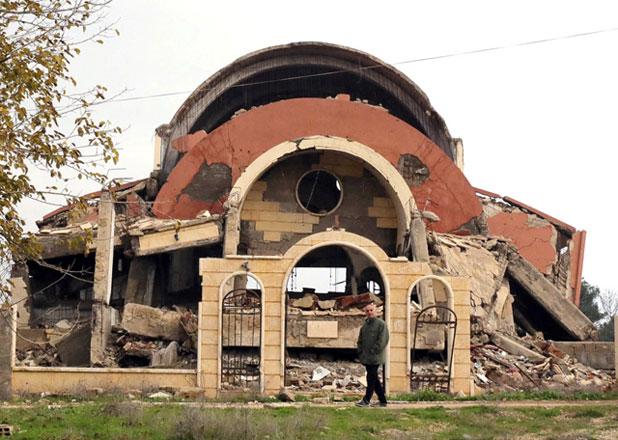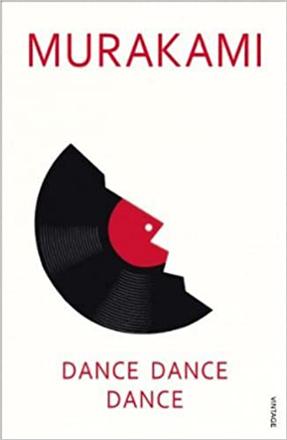You are here
Dislocation in the name of progress
By Sally Bland - Jan 12,2020 - Last updated at Jan 12,2020

Harvest
Jim Crace
New York: Vintage Books, 2013
Pp. 243
“Harvest” is a novel of transition, set in a small English village at the time when the effects of the Industrial Revolution are expanding into the remote countryside. This can mean replacing traditional farming with raising sheep, their wool prized by the expanding mills — the marriage of agriculture and industry in the rising capitalist system.
Author Jim Crace doesn’t tell the reader this directly, but pens a personal story to illustrate how the change can affect society. He matches his prose to the transition, infusing deliberate, elegant and well-rounded sentences reminiscent of classical English novels with the stark emotional impact of modern literature.
The other theme in “Harvest” is that of “the outsider”, a recurrent motif in modern writing. Again, Crace matches style to theme by designating Walter Thirsk, a relative newcomer to the self-contained village, as narrator. The arrival of a number of newcomers to the village in the first few pages of the novel catalyses the plot.
While Thirsk had arrived twelve years prior with Master Kent and his wife, who had inherited the farm from her father, most of the villagers have been there for generations. Illiterate and distrustful of strangers and change, they cultivate barley, but harvests are decreasing, threatening the self-sufficiency they have known for as long as they can remember. Justice is swiftly meted out to those who don’t belong. Thirsk understands the villagers: “It makes sense in such a distant place as this, where there is little wealth and all our labours are spent on putting a single meal in front of us each day, to be protective of our modest world and fearful for our skinny lives.” (p. 16-17)
Yet, Thirsk also harbours empathy for the three outsiders who light a fire on the perimeter of the property, which under prevailing laws is the same as staking out a claim to stay. Their arrival reminds him of his own outsider status. While he loves the rhythm of nature and outdoor work on the farm, their arrival also reminds him that “there is another world clear of the forest tops, a world beyond the rule of seasons, a redrawn world… I stand at the threshold of the gleaning field and wonder what the future has in mind for me”. (p. 58)
Thirsk feels his tenuous status in the village even more with the arrival of another group of strangers. Master Kent received the farm through marriage and his wife is now dead, leading her cousin to come with plans to repossess the property and make it profitable by replacing subsistence grain farming with sheep raising. Since Thirsk has old ties to the Master, he is privy to these plans and feels guilty about not sharing his knowledge with the other villagers, for the plan “involves the closing and engrossment of our fields with walls and hedges, ditches, gates. He [the cousin] means to throw a halter around our lives. He means the clearing of our common land. He means the cutting down of trees… Our final harvest may have come and gone”. (pp. 36, 59)
Clearly, the village risks losing its autonomy, and villagers who aren’t useful in the new scheme may be let go.
The plot is further complicated when another fire breaks out, destroying one of the master’s stables, and igniting a chain of events which spin out of control: in the course of a single week, the transition is accomplished, clearing the way for the cousin’s plan to be implemented.
Thirsk stands as a Hamlet-like figure, wanting to take decisive action but paralysed by self-doubt. His descriptions of village life and the surrounding natural world are charming and lush with precise details, as are his musings about his loves and lusts. He is a keen observer of human behaviour and the subtle and not-so-subtle signs of class privilege. But Thirsk is not an omniscient narrator; he doesn’t know for sure who started the fires; neither does the reader. This murky cause-and-effect relationship shrouds many pivotal events in the story and is one of the author’s main techniques for building suspense and making the reader think twice.
What is clear, however, is that the villagers, when facing an unexpected situation, do not always act in their own interests, and their lack of class solidarity plays into the hands of the rich and powerful. Ironically, the three “newcomers were fugitives from sheep themselves, exiles from their own commons”, but the villagers don’t bother to find this out before reacting negatively to their presence. (p. 203)
The shift from grain to sheep could be a metaphor for the many dislocations that are still happening under the banner of progress and profit, just as the outsider theme is predictive of today’s world refugee crisis and the negative reactions it has evoked in some quarters. Like Thirsk, we should be weighing our responsibility to humankind and the world we inhabit. Unlike Thirsk, we should take action before it is too late. Crace has written a compelling story about a small place that has enormous, timeless implications.
Related Articles
TEL NASRI, Syria — The one family still living in a Christian village devastated by Daesh is working to revive Christmas traditions that hav
Dance Dance DanceHaruki MurakamiTranslated from the Japanese by Alfred BirnbaumLondon: Vintage, 2003, 393 pp This is Murakami’s sixth n


















